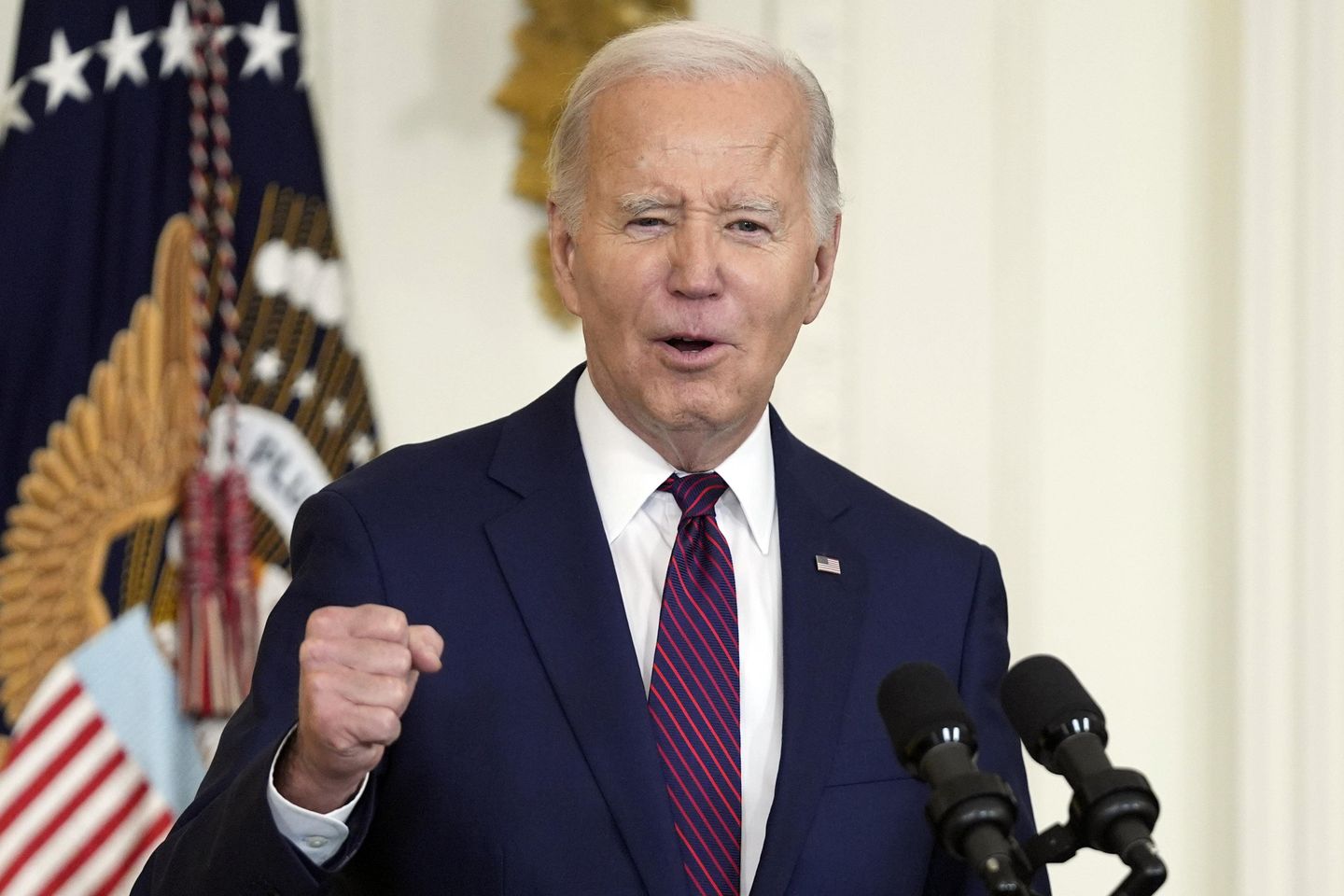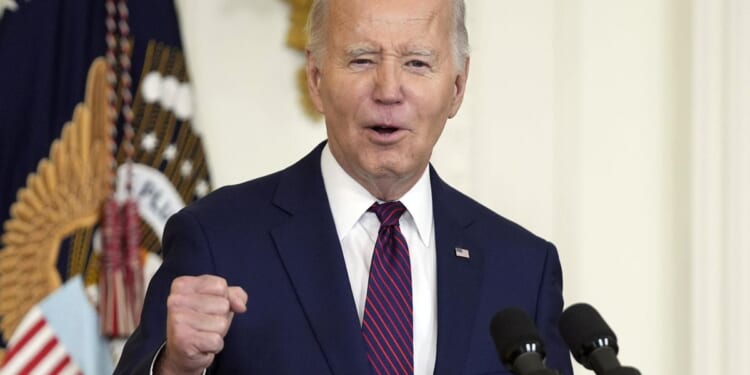
President Biden on Tuesday hosted a Black History Month reception at the White House as he struggles to keep Black voters on board his reelection campaign.
The event, which also included Vice President Kamala Harris and Second Gentleman Doug Emhoff, was attended by 500 Black community leaders, activists and business professionals.
In his public remarks, Mr. Biden shied away from touting his efforts to deliver for the Black community, a reliable Democratic voting bloc that has soured on the president.
Instead, Mr. Biden warned that democracy is under threat in the upcoming election.
“We face a moment of real choosing. I mean that sincerely. It’s not hyperbole,” he said. “In this moment, may we choose to be the light and make real the promise of America for all Americans.”
“May we make clear that in America, we still believe in honesty, decency, dignity and respect where we leave no one behind,” Mr. Biden said.
Mr. Biden has nominated the first Black woman to the Supreme Court, Justice Ketanji Brown Jackson, and Black business ownership has doubled since 2019. Still, his approval rating among Black voters has dropped.
Mr. Biden’s resounding victory last week in the South Carolina primary has quelled some concerns about his strength among Black voters. He won the primary with more than 96% of the vote against little competition, but half the state’s Democratic voters are Black.
The latest Associated Press-NORC Center for Public Affairs Research poll found that Mr. Biden’s approval rating among Black voters is 42%, a sharp decline from the first year of his presidency when it stood at 86%. Other polls have also yielded similar results.
The polls show that Black voters are frustrated with Mr. Biden’s inability to deliver on his key campaign promises, among them forgiving student loans, rolling back restrictive voting laws and pushing for legislation overhauling policing in America.
However, Black voters have also expressed significant frustration with Mr. Biden’s handling of the economy.
The unemployment rate for Black men aged 20 years and older ticked up 5.3% in January from 4.6% in December, according to Labor Department data released on Friday.












